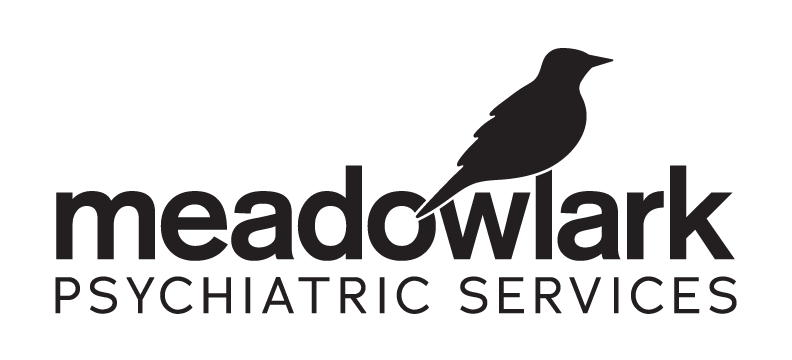Professional Treatment Options for Mental Health Concerns
Depression, Attention Deficit Hyperactivity Disorder, and Obsessive Compulsive Disorder are all common mental health conditions that affect millions of people worldwide. Each diagnosis comes with its own unique symptoms and challenges, as outlined in our previous blog, but the good news is we have evidence-based treatment options available that are effective in managing these conditions.
First, let’s take a look at the primary types of mental health treatment solutions that are available to you.
Psychotherapy
Psychotherapy is what most people think of when they picture “therapy.” It’s typically a one-on-one session guided by a licensed therapist, psychologist, psychiatrist, or mental health practitioner and involves talking through your experiences. There are several different kinds of talk therapy, including:
Psychodynamic Psychotherapy focuses on bringing unconscious or repressed thoughts and feelings to the surface for examination. The goal is to see how unconscious thoughts and behaviors might influence a person’s thinking, behavior, and relationships.
Behavior Therapy focuses on identifying and eliminating unhealthy behaviors. The goal is to help individuals develop healthier patterns of behavior by addressing the specific actions that contribute to their challenges.
Cognitive Therapy focuses on identifying and challenging distorted or negative thought patterns that influence behavior and emotions. The goal is to help individuals reframe thoughts and develop ways of thinking that improve emotional well-being.
Interpersonal Therapy focuses on ways a person’s interpersonal relationships affect their emotions and behaviors. By strengthening and building interpersonal relationships and communication skills, a person learns to improve their own mental health.
Somatic Therapies This group of therapies involves specific behaviors or actions in combination with psychodynamic and cognitive techniques to reduce the power and impact of negative experiences and trauma. These therapies include EMDR (Eye Movement Desensitization and Reprocessing), Somatic Experiencing Therapy, Brain Spotting Therapy, and several others. In some cases, medication and yoga practices are part of somatic therapy.
Internal Family Systems Therapy uses techniques pioneered in family therapy to address different parts of a person’s personality and help heal dysfunction and competing needs. The goal of Internal Family Systems is a harmonious sense of self and its accompanying increase in overall mental health.
Common Types of Mental Health Medications
Mental health medication can also play an important role in an individual’s overall treatment plan. Medications are organized into families that treat similar conditions but may do so in different ways.
Antidepressants are medications commonly used to treat clinical depression and other mood disorders. This includes Selective Serotonin Reuptake Inhibitors (SSRIs), Serotonin-Noradrenaline Reuptake Inhibitors (SNRIs), and Norepinephrine-Dopamine Reuptake Inhibitors (NDRIs) among others.
These medications can be used to reduce and eliminate all symptoms of depression, including low mood, irritability, inattention, sleep changes, appetite changes, low motivation/interest, and negative, self-destructive thoughts. Each medication has many nuances that can be tailored to a person’s specific symptoms and history.
Anti-anxiety medications are used to reduce symptoms of panic and anxiety. Most antidepressants are also effective in treating anxiety, as are medications such as Buspar, benzodiazepines, beta-blockers, antihistamines, and mood stabilizers.
Stimulant medications are commonly prescribed to treat Attention Deficit Hyperactivity Disorder, Narcolepsy, and some sleep-related conditions.
These medications help improve focus, attention, and impulse control, all of which makes it easier for individuals to stay organized, improve executive functioning, and manage their daily tasks.
Antipsychotic medications are used to manage symptoms of many conditions including severe depression, tic disorders, bipolar disorder, and psychotic disorders such as schizophrenia.
These medications help individuals by stabilizing mood, improving thinking, and supporting overall mental stability for a better quality of life.
Mood Stabilizer medications help balance the extreme highs (mania) and lows (depression) of bipolar disorder. Sometimes, they can also be helpful in non-bipolar depression, anxiety, and psychotic disorders. Each mood stabilizer has unique properties and needs to be tailored to a person’s symptoms and history.
Struggling? We’re Here to Help!
Common mental health conditions, like depression and anxiety, can damage one’s mental health. Symptoms may come on gradually and slowly until they impact nearly every aspect of a person's life. For example, according to the Surgeon General, Major Depressive Disorder is one of the most common illnesses with clear and effective treatment — yet it goes untreated far too often.
Have you noticed yourself or a loved one feeling down, more irritable, or showing signs of sleeping problems and a general lack of enjoyment in life? These are indicators that someone may be suffering in silence and doesn’t even know it. Why not start feeling better? Make an appointment today!
At Meadowlark, we’re here to help. Reach out today to explore potential underlying challenges and find the treatment options that will help you feel like you again.

